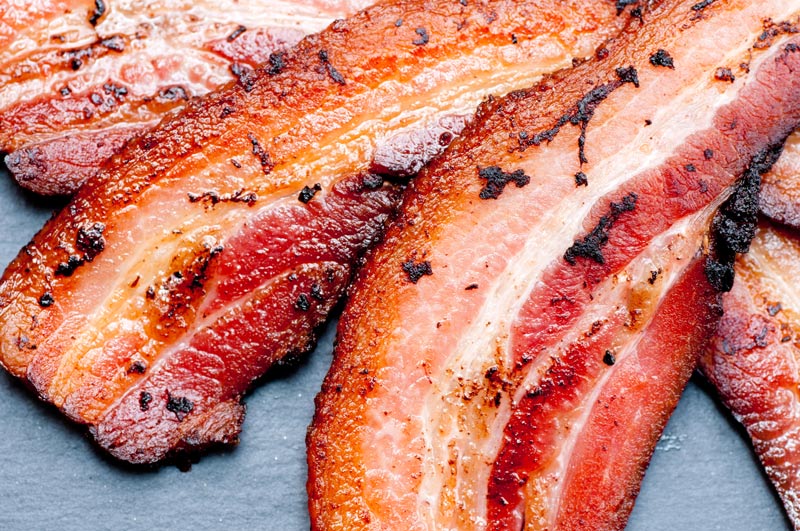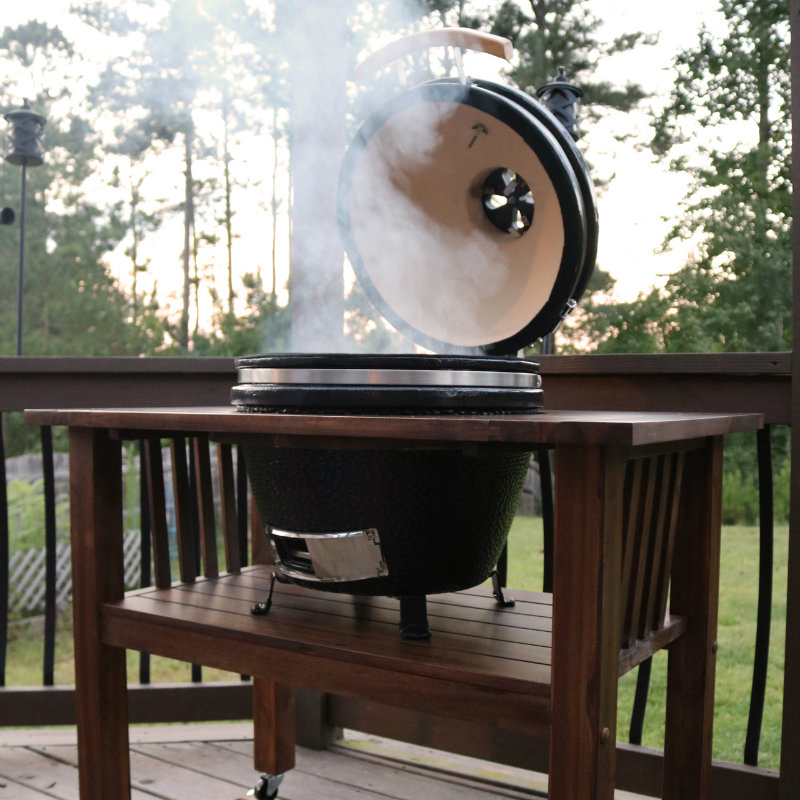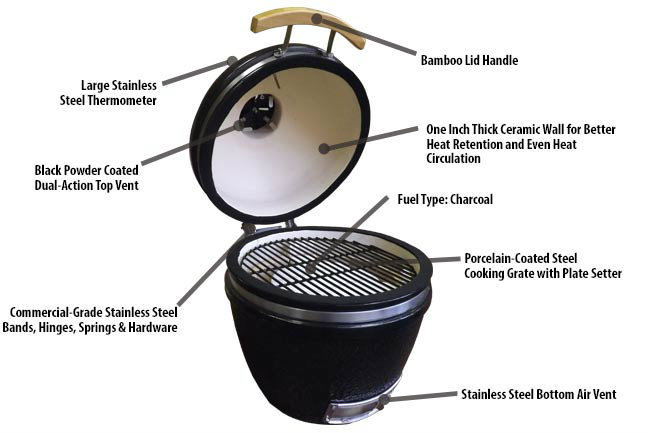For some, a simple reference to pork belly is enough to get your mouth watering and stomach growling. Waking up to the smell of bacon cooking, especially on holidays, in a nostalgic and timeless tradition practiced by many families throughout the U.S.
Cooking your own homemade bacon is a lot simpler than expected, and only requires some pork belly and a little bit of time to create your very own thick cut bacon from the comfort of your home. To aid you on your journey to mouthwatering, homemade bacon, our Duluth Forge Kamado Grill is the perfect cooking companion.
Umami of bacon
Currently, there are 4 widely known flavors common in foods: bitter, salty, sweet, and sour. A 5 th, lesser known flavor is umami, pronounced "ooo-MOM-ee", which roughly translates to “pleasantly savory” in Japanese. Examples of umami flavors can be found when a perfectly seared steak melts in your mouth at the first bite, or when bacon is cooked to have a balanced crispy and chewy quality. Umami is achieved through the breakdown of proteins to release flavor via common cooking techniques such as fermenting, roasting, or smoking.
Bringing home the bacon
Bacon and all of it’s glory has existed roughly since the 14th Cenutry, and the phrase “bring home the bacon” originates from working class slang in 1908. Currently the average American eats roughly 18lbs of bacon each year, and while bacon is an undisputed love of many, it does pose health risks. Factory processed bacon is cured, a process the NorthAmerican Meat Institute defines as “…a tried and true way to preserve meat products using salt, sugar, sodium erythorbate, and sodium nitrate.” However the curing process is primarily designed and used to extend shelf life and maximize profits, not increase the bacon’s flavor.
Processed Bacon vs Homemade
Organic meat is often free from antibiotics and processing chemicals than its inorganic counterpart. Additionally, homemade bacon can be more flavorful and seasoned with the spices you desire to create your own perfected savory flavor combination. At the end of the day bacon, whether homemade or not, is still a red meat high in fat and sodium, and as such should be enjoyed in moderation.
How to Smoke Applewood Bacon on a Duluth Forge Kamado Grill
Ingredients
3 lbs pork belly
2 tablespoons brown sugar
1 tablespoons mustard powder
1 tablespoons ground pepper
8 oz salt
4 oz sugar
1 oz Prague Powder #1
Instructions
1. Mix the mustard powder, brown sugar, and ground pepper together and rub the whole pork belly with the mixture.
2. Place the pork belly in a ziplock bag and store it in the fridge for a day or two, flipping it over every day to ensure its evenly marinated.
3. The bacon is ready to smoke when it is firmed up. Rinse it under the sink and pat dry.
4. Smoke the bacon with applewood for three hours at around 200℉.
Slice, fry up in a pan or bake in the oven on a baking sheet (for less of a mess), and enjoy.
Our iconic Duluth Forge Kamado Grill features one inch thick ceramic walls which allow for better heat retention and even circulation. The Stainless Steel Dual-Action Top Vent allows for faster starting, searing, and heat adjustment. Equipped with a Bi-Level Cooking Grate, easy to read Stainless Steel thermometer, and Commercial-Grade hardware, you will love cooking in the outdoors with your Kamado Grill!
 Loading... Please wait...
Loading... Please wait...















